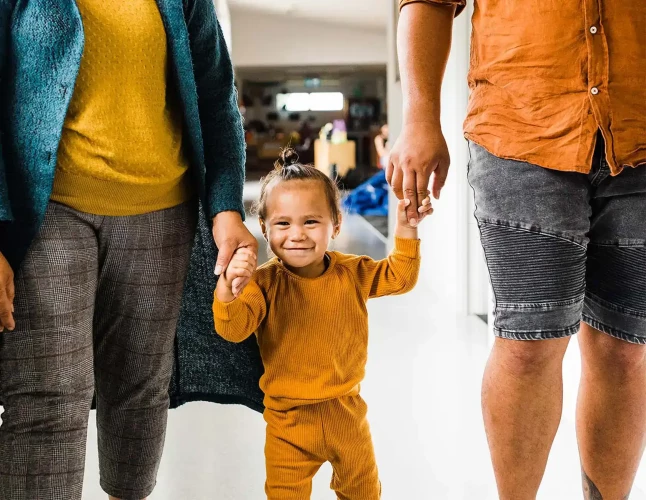
Managing behaviour Module 6

Supporting whānau to manage their children's behaviour using key principles of positive parenting.
On this page
Early relationships are the key to children's behaviour. Adults interact with babies to establish a bond. Bonding develops babies' sense of trust.
A child who learns in the context of nurturing and caring relationships has a secure base, which will benefit all of their future development and behaviour.
How can we help our tamariki to grow up to be happy, confident adults? The way we behave as parents will influence how our children's behaviour develops. Our children learn from our example.
Learning goals
- Build the confidence and ability to parent positively.
- Use a fair and firm approach to parenting.
- Understand the difference between discipline and punishment.
Session plan
Begin the session with an appropriate settling in time – for example, karakia, gathering thoughts, waiata and simple ‘hellos’. Whānau may share thoughts or feelings, if they wish.
Introduce the topic – this week we be exploring key principles of positive parenting.
Mix and match from the pūtea of related workshops below. Consider the following when selecting which other ones will work best for your group:
- the size of your group
- how much time you have
- the ages of the participants’ children
- factors such as literacy levels and the particular needs of the individuals you are working with.
The Children's voices workshop is a great place to start.
Background information
Before you plan this module, it’s a good idea to read more about the six principles.
Six principles of effective discipline
The article on the six principles gives a comprehensive background to managing behaviour, and many of the Tākai resources are based on it.
So, how can we help our tamariki to grow up to be happy, confident adults?
Be a good example
When we talk about managing behaviour so that children grow up to be happy and confident adults, the first behaviour we have to manage is our own. How we behave as parents will influence how our children’s behaviour develops. Our children learn from our example. It’s as simple as that.
Loving relationships
Adults interact with babies to establish a bond. Bonding develops babies’ sense of trust. A child who learns in the context of nurturing and caring relationships has a secure base, which will benefit all of their future development and behaviour.
Right from the start, early relationships are very important for a child’s learning and development. You can take steps to teach your child positive behaviours.
Good communication
Good communication is vital, and makes all the difference. Listening and talking to babies and young children makes them feel safe and supported as they start to explore the world.
Reading your child
Other adults may give parents lots of advice on how to be a ‘good’ parent. But the child gives the most important information about what they need.
- Try to see the world through the eyes of the child.
- Think about how they’re making sense of the world and what they’re learning.
Listen to and include your child
Even when life is busy, stressful or hard, make time to listen to your child – give them time to gather their thoughts and find the words they need.
- Keep the pace of the conversation slow.
- Let them know when it’s their turn by using your tone of voice, facial expressions and words.
- Provide a suitable play environment.
- Slowly build up what is considered ‘right’ and ‘wrong’, according to whānau culture and what is seen as important.
- Provide their caregiving routine warmly and cheerfully, and involve them as much as possible.
- Help children develop a sense of self-control.
- Ensure they are included in and feel part of the whānau and whānau routines.










